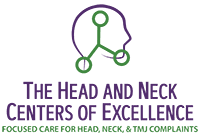Bad Posture Treatment
Our clinic addresses these components using a precise multifaceted approach to provide you not only with thorough care, but to provide you with lasting long-term results so that you can enjoy the life that you’re meant to. Using the most advanced Non-Surgical remodeling treatment technology on the market, you can experience significant pain reduction within as little as just a few visits. Our technique then aims to help restore normal spinal biomechanics and literally change your posture for the long-term.
Dr. Andrew Smith, D.C. realized that there was a real disconnect in the way that chronic headaches, jaw, and neck pain were treated. People were jumping from one form of therapy to another in search of a resolution to their pain. However, essential components that caused their symptoms weren’t being addressed, and so these people continued to suffer and were labeled as “chronic” pain sufferers. In fact, due to the success of his exclusive Non-Surgical A.S. Remodeling Procedure®, patients travel from around the country to seek his services. By addressing the underlying abnormal posture and joint positioning, reduction and resolution of symptoms is common.
So, if you’re presently suffering from headaches, chronic neck pain or TMJ issues, and have tried other treatment options without success, then you may be a candidate for Dr. Smith’s care

Causes of Poor Posture
Risk factors for poor posture can include psychosocial factors such as job stress, lack of confidence, and tension (strain). Workers who have higher job stress are more likely to develop neck and shoulder symptoms than those in a laid-back environment. Most cases of neck pain have a postural component as part of the underlying problem. In such cases, recognizing and understanding poor posture can play an important role in finding neck pain relief. The longer that poor posture is continued (such as being hunched over a computer or slouching on the couch), the more likely that neck pain, stiffness, and other symptoms may develop.
Other Causes Include:
- Increased stress on the cervical(neck) spine,
- Hyperflexion and hyperextension trauma (car accidents, sport injuries)
- Muscle overload (repetitive motion like computers and smart phones)
- Hunched upper back, scoliosis
- Poor sleeping habits
- TMJD
- Arthritis
